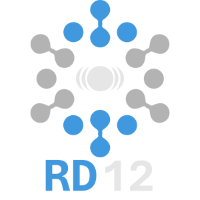Speaker
Description
The high-intensity femtosecond pulses generated by X-ray free-electron lasers enable pump-probe studies of electronic- and nuclear changes during light-induced reactions. On time scales from femtoseconds to milliseconds and for a variety of biological systems, time-resolved serial femtosecond crystallography (TR-SFX) has provided detailed structural data on processes such as light-induced isomerization, breakage or formation of chemical bonds and electron transfer. However, to date, most if not all ultra-fast TR-SFX studies have employed such high pump laser energies that nominally, several photons were absorbed for each chromophore. As such multiphoton absorption processes may force the protein response into nonphysiological pathways, this is of considerable concern as it poses the question whether this experimental approach allows valid inferences to be drawn about biological processes, which are likely single-photon.
Here we describe an ultrafast pump-probe SFX study of the photodissociation of carboxymyoglobin, which shows that different pump laser fluences result in strikingly different dynamics. In particular, these concern the mechanistically important coherent oscillations of the Fe-CO bond distance (predicted by recent quantum wavepacket dynamics) which are seen to depend strongly on pump laser energy. While our results confirm both the feasibility of performing TR-SFX pump probe experiments in the linear photoexcitation regime, they also show the necessity of doing so. We propose this to be a starting point for the reassessment of the design and interpretation of ultrafast TR-SFX pump probe experiments, to ensure any emergent insights are biologically relevant.

